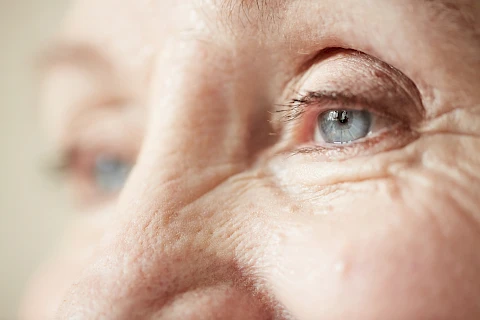
November marks Diabetic Eye Disease Month, a critical time for raising awareness about how diabetes can impact vision. This is especially necessary for seniors, as they are more prone to the ailments that come with aging and diabetes. Understanding how diabetes affects eye health is pivotal in preventing serious issues. Seniors and their caregivers can use this guide to empower themselves with the knowledge they need to protect their eyesight.
Diabetes and Eye Health
Diabetes is more than just managing blood sugar; it also significantly affects eye health. The high blood sugar levels associated with diabetes can lead to damage in the blood vessels of the retina, increase the risk of cataracts, and even lead to glaucoma or partial vision loss.
The most common diabetic eye diseases are:
- Diabetic Retinopathy: This occurs when high blood sugar levels cause damage to the blood vessels in the retina, potentially leading to blindness if untreated.
- Cataracts: People with diabetes are more likely to develop cataracts, a clouding of the eye's lens, at an earlier age.
- Glaucoma: Diabetes doubles the risk of glaucoma, a condition caused by increased pressure in the eye, leading to optic nerve damage.
Recognizing Symptoms and Risks
Being aware of early warning signs can make a significant difference. Symptoms include blurry vision, floaters, difficulty seeing colors, dark or empty areas in your vision, or sudden vision loss. If you experience any of these, you must see an eye doctor immediately.
Seniors with diabetes face a higher risk for these eye diseases due to factors like age, longer duration of diabetes, high blood pressure, high cholesterol, and genetics. Detecting issues early can mean the difference between preserving and losing eyesight.
Managing Diabetes for Better Eye Health
Managing diabetes effectively is paramount to protecting your eyes. Keep your blood sugar levels under control by regularly checking your levels and adjusting your diet and medication accordingly. Eat a balanced diet rich in fruits, vegetables, and whole grains, and limit your intake of sugars and processed foods. Engage in regular physical activity to keep your heart and eyes healthy. Take your medications as prescribed and consult your doctor if you notice any side effects.
Why Regular Eye Exams Are Critical
Regular eye exams are advantageous for seniors with diabetes. It is generally recommended to have a comprehensive eye exam at least once per year. These exams can detect issues before they become serious, allowing for early intervention.
During an eye exam, the doctor will check for signs of damage to the retina, detect cataracts, and measure eye pressure to check for glaucoma. Early diagnosis and treatment can prevent vision loss.
Local Resources and Support
Senior Helpers offers chronic disease care for seniors managing diabetes. Their services are designed to help seniors maintain their independence while effectively managing their condition.
Additionally, numerous community resources are available in Denver and nearby that provide support, from diabetes education programs to support groups.
Turn to Senior Helpers Denver North for Diabetes Management
Being proactive about eye care can prevent vision loss and improve the quality of life for seniors with diabetes. By understanding the risks and taking steps to manage diabetes, seniors can protect their eye health. We encourage you to take action today by scheduling regular eye exams and managing your diabetes effectively.
For personalized support, don't hesitate to contact us at Senior Helpers Denver North. We are here to assist you in managing your diabetes and maintaining your eye health in Aurora, Lafayette, Wheat Ridge, and nearby. Stay informed and take the necessary steps to preserve your vision.